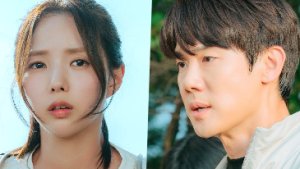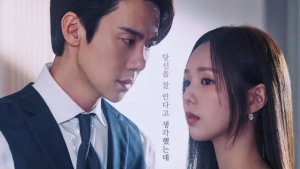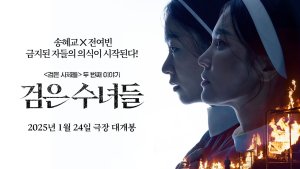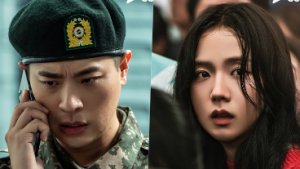 'When the Phone Rings' takes Netflix by storm, scores new personal-best ratings
'When the Phone Rings' takes Netflix by storm, scores new personal-best ratings
Currently Watching
Ouroboros
I’ve watched Ouroboros for four weeks so far, and every week I’m pleasantly surprised by how much I want to watch the next episode.

I’m new to revenge and suspense dramas, both genres to which Ouroboros definitely belongs. To be fair, I’m new to pretty much every genre of drama other than rom-com, so I’m quite pleased to find that I started on a whopper.

The Ouroboros is the symbol of a snake eating its own tail, famous in most ancient cultures from Greek to Norse and Mayan. It traditionally symbolized the cyclical passage of time, you know, eternity, resurrection, all that.

This image is seen quite often, and our two heroes take it upon themselves to become the Ouroboros—the two-headed dragon.

Ikuta Toma is Ryuzaki Ikuo, easily the more relatable and genial of the two heroes. He has an extra sensitive nose and ears and believes in justice. He’s loyal to a fault and extremely inquisitive, which is a good trait to have as a police officer, his chosen path to help in his and the other ‘dragon’s’ quest to take revenge for the murder of their beloved sensei. Ikuo is the more child-like of the two, more at ease and, at least to appearances, happier. However, he is not to be trifled with. There is a reason he has the highest arrest rate in the Second Bureau!

Oguri Shun is an excellent Danno Tatsuya, an up and coming yakuza (the Japanese term for ‘gangster’) lieutenant. On the same quest as Ikuo, he has taken on the underground of Tokyo to live in, to discover the secrets and truths they will need to figure out what happened to Yuiko-sensei. Far more reserved, Tatsuya is a total boss in not only his butt-kicking ways, but also in witty comebacks and clever avoidances of being questioned. But just like Ikuo, his exterior is not all he is, and he shows glimpses of the loving and carefree child he used to be. I find the two of them very yin and yang, each one the opposite of the other in every way except for the one thing that balances them out.

Ueno Juri plays beautiful and determined Hibino Mizuki, Ikuo’s partner at the Second Bureau and a Police Superintendent’s daughter, with whom she has a strained relationship. Hibino-chan has a very strict sense of right and wrong, and it is very easy to see that she would not approve of Ikuo’s and Tatsuya’s plan. However, she does care for Ikuo in general. She is always willing to go the extra mile (which includes disobeying orders and putting herself in danger) to discover the truth and right a wrong.

Takito Kenichi is Chono Shinichi, who is a wonderful not-quite-villain. A police officer from the First Bureau, he outranks both Ikuo and Hibino-chan and has no trouble letting them know that. He really isn’t much more than a secondary support character, but I love this actor. His facial expressions are unrivaled, and he plays the determined and suspicious Chono so well, I couldn’t not mention him here.

Hirosue Ryoko plays Kashiwaba Yuiko, the stunningly sweet and extremely mysterious manager of the orphanage that Ikuo and Tatsuya were raised in. She was murdered when the two heroes were (I’m guessing) no more than ten, and her murder was then quickly and quietly swept under the rug leaving Ikuo and Tatsuya craving truth and vengeance. A mother to the two lads when they had no other, the flashbacks of her caring persona leave me wanting revenge for her murder!

Ouroboros is first and foremost a cop show, and therefore each episode has its own miniature plot-line. Of course, throughout the entirety of the investigation into who killed the most recent victim, our two dragons risk death and revelation to continue with their own personal investigations.

I find the concept of two people working together in literally opposing fields so interesting, especially with the express purpose of rising through the ranks to someday be powerful enough to know what happened to a murdered caretaker. This show, like many dramas, can be quite repetitive, showing the same or similar scenes several times over (especially flashbacks… flashbacks are the bane of my existence in dramas. And then there are flashbacks of flashbacks. Will it ever end?). However, unlike many dramas, I often find new material to ponder during these ‘flashbacks,’ things that have been revealed since. I can go “Oh, so that’s where it came from” and whatnot.

Another thing I really like (that I touched on before) is just how much Ikuo and Tatsuya mirror each other. They are exactly the opposite of one other, each probably unable to properly function without the other, with only the slightest bit of a ‘flaw’ to their built up personalities. Because of their professions, neither can be seen with the other and they have burner phones for conversing only with each other, sometimes meeting in public to talk by sitting back to back at separate tables. Maybe it’s just me, but I can’t help but think every time I watch one of those scenes: “How can they hear each other without letting everyone else in the restaurant hear?” But this is drama-land, and such questions must never be asked.

Interesting questions are brought up each episode, about good vs. evil, what’s right, what is the meaning of justice. Of course, I rarely have time to really ponder these questions in depth until the end of the episode between the secret societies and police corruption and your everyday police chase. But my favourite to think about as I not-so-patiently wait for the next week’s episode is: who would these men have become without such a tragedy occurring in their childhood? And of course the obligatory follow-up: who would I have become if that had happened to me?








